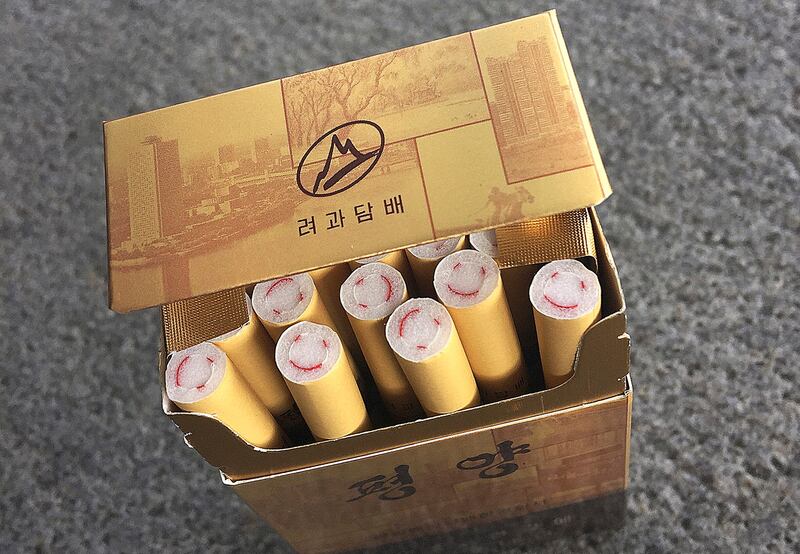Hungry North Koreans are swooping in ahead of cleaning crews for large public events to collect the butts of filtered cigarettes, which they then sell for meager sums of cash, residents in the country told Radio Free Asia.
The cigarette butts have filters made of fibers that can either be recycled into new cigarettes or used to make clothing, sources said.
On Feb. 16, North Korea celebrated the Day of the Shining Star, the birth anniversary of leader Kim Jong Un’s late father and predecessor Kim Jong Il.
It is customary for every resident of every city to present flowers at statues of the late “Dear Leader,” and people can spend several hours in the town square waiting in line for their turn.
“The flower ceremony in Chongju ended at noon,” a resident of the northeastern province of North Pyongan told RFA Korean, speaking anonymously for reasons of personal safety. “After the event, many women came to pick up cigarette butts around the street and in front of the statue, where thousands of people had gathered to give flowers.”
He explained that men who are bored of waiting often light up a smoke, and then throw the butts on the ground when they're done. RFA reported previously that there is a ban on smoking in public, but it is often only enforced for women.
The resident said that most of the people gathering the cigarette butts after the Day of the Shining Star were women.

Filtered cigarettes were once a sign of wealth and status that only rich people could afford in North Korea, while most smokers used hand-rolled cigarettes with no filters.. In the 2010s, state-owned factories started making filtered cigarettes more cheaply and they became widely available, giving rise to more cigarette butt litter.
A resident of North Pyongan’s Ryongchon county reported a similar scene of women gathering cigarette butts following the laying of wreaths for Day of the Shining Star at an area monument called the Tower of Eternal life.
“You can get money for filtered cigarette butts if you take them to people who make winter clothes,” she said, speaking on condition of anonymity citing security concerns. “But, if you take them to those who make cigarettes, you can sell them at a slightly higher price. So some farmers survive by picking up cigarette butts at stations and marketplaces.”
The price of 1 kilogram (2.2 lbs.) of filtered cigarette butts is around 10,000 won (US$1.13) which is the same price of about 3 kilograms (6.6 lbs.) of corn at the market, the resident explained.
“We know that we can find lots of cigarette butts at political events such as the Day of the Shining Star,” she said. “Some of the farmers choose to pick up cigarette butts rather than participate in the event itself.”
Translated by Claire S. Lee. Edited by Eugene Whong.

